My Fleeting Life – A Sufi Poem for the Life Journey
Life passes by very quickly—some even in say "in a blink of an eye."
But we can live our life in a way, such that every moment and day is productive, peaceful, and meaningful.
Yunus Emre's "My Fleeting Life" is a beautiful reminder of that, and how we should view ourselves as an eternal soul rather than a dying body.
So, if you're looking for some inspiration or spiritual wisdom to help you on your life journey, dive into this beautiful Sufi poem and let yourself be carried away.
Sending peace and love to all.
#yunusemre #sufipoetry #spiritualpoetry
---
If you are looking for more inspiration, spiritual poetry, and ancient wisdom for awakening, please subscribe to my YouTube channel and follow me on social:
https://www.youtube.com/c/NajimMostamand
Website: https://najimmostamand.com/
Instagram: https://www.instagram.com/najimmostamand/
Facebook: https://www.facebook.com/najimmostamand1/
Patreon Donation Page: https://www.patreon.com/najimmostamand
Medium: https://medium.com/@namostamand
© 2022 Najim Mostamand
---
My fleeting life has come and gone
A wind that blows and passes by.
I feel it has been all too brief,
Just like the blinking of an eye.
To this true word God will attest:
The Spirit is the Body's guest,
Some day it will vacate the breast
As birds, freed from their cages, fly.
Life, my good man, can be likened
To the land that the farmer sows:
Lying scattered all over the soil,
Some of the seeds sprout, but some die.
If you visit and give water
To a sick man who needs care,
With God's wine, he shall hail you there
One day when you soar to the sky.
~ Yunus Emre
---
Yunus Emre (1238-1328) was a 13th century Turkish folk poet and Sufi mystic who greatly influenced Turkish culture, literature, poetry, and philosophy. Some writers and scholars even regard him as the most important poet in Turkish history, as well as a key figure in Sufism. Rather than composing poetry in Persian (or Farsi), which was the region's literary language during that time, he wrote mostly in Turkish, with his poems often dealing with divine love, human destiny, and reuniting with God or one's True Essence.
But aside from being a poet and wandering dervish, Yunus was also a popular preacher and man of the people. He called for social justice, equality, and other humanistic ideals, often coming at odds with those whom he deemed as oppressors of the common people. He believed that loving one's self, or ego—and seeking power, recognition or wealth to enhance that self—creates distance between us and the rest of our community, hardening our hearts and obscuring the divine love we have for God and all of humanity.
Like many Sufis during his time, he believed that one had to annihilate their sense of self to reach God.
There are several interesting comparisons between Yunus Emre and his more famous contemporary Rumi. These comparisons are probably due, in part, to the similarities in their life journey prior to becoming the beloved poets, mystics, and philosophers they are known to be today. Just as Rumi had Shams-e Tabriz, Yunus had Taptuk Emre, who humbled and inspired him to leave worldly pursuits behind in favor of acquiring real spiritual wisdom.
Rumi was known to write his stories, songs, and poems for a well-educated group of urban Sufi mystics, almost exclusively in Persian. However, Yunus Emre was more itinerant, traveling and teaching among the rural poor in the Turkish language of the everyday folk.
Even though he is not as famous today as Rumi, Yunus Emre is still loved in many parts of the world. His poetry still touches the hearts of lovers...even seven centuries later.
-
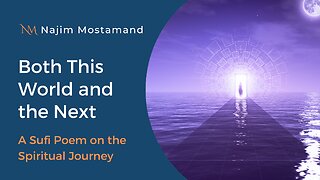 15:06
15:06
Najim Mostamand
1 year agoBoth This World and the Next: A Sufi Poem on the Spiritual Journey
392 -
 17:09
17:09
Najim Mostamand
1 year agoFind the Way to Heaven – A Rumi Poem on the Spiritual Purpose of Life
7662 -
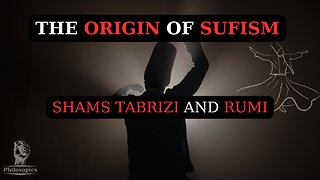 7:12
7:12
Philosopics
6 months agoEvolution of Sufi Mysticism | Shams Tabrizi & Rumi's Journey
87 -
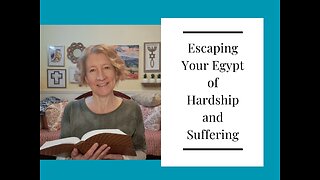 10:28
10:28
Daily God Gems
1 year agoEscaping Your Egypt - enduring and overcoming times of hardship and suffering
82 -
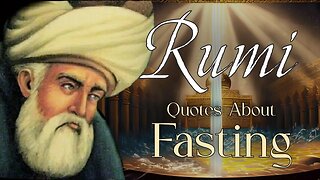 12:55
12:55
echoesofwisdom
3 months agoFasting is the Wine of Soul - Quotes From Mevlana Rumi For Ramadan From the Mathnawi and Divan
88 -
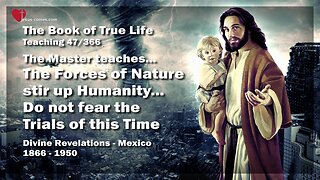 32:24
32:24
The Book of the true Life
1 year agoForces of Nature stir up Humanity... Do not fear the Trials of this Time ❤️ The Book of the true Life Teaching 47 / 366
1561 -
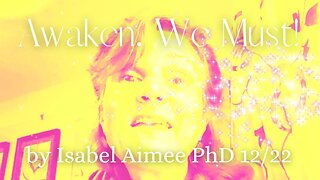 4:58
4:58
The Heavenly Tea
1 year agoAwaken We Must! An INSPIRITION Poem for our Times!
831 -
 7:28
7:28
MargaretAnnaAlice
4 months agoHard Lessons: Poem for a Mentor on His Retirement (Written & Read by Margaret Anna Alice)
44 -
 4:08
4:08
VinsonJames
1 year agoJourney
186 -
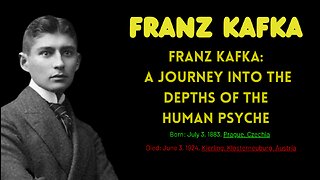 5:23
5:23
Mr3003258700
9 months agoFranz Kafka A Journey into the Depths of the Human Psyche
48